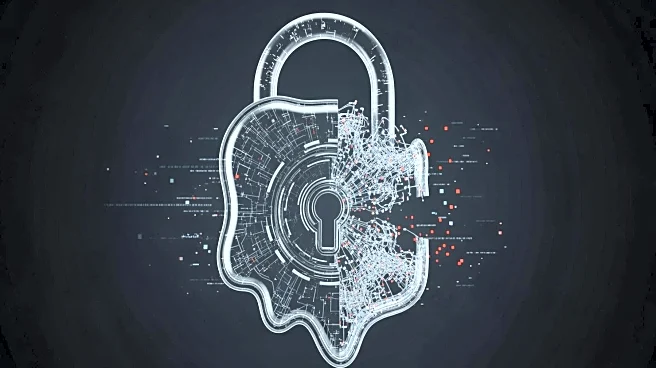What's Happening?
Kessler Topaz Meltzer & Check, LLP has initiated an investigation into F5, Inc. after the company disclosed a significant cybersecurity breach. On October 15, 2025, F5 revealed that a sophisticated nation-state threat actor had gained unauthorized access
to its systems as early as August 9, 2025. The breach allowed the threat actor to maintain long-term access to F5's systems, including the BIG-IP product development environment and engineering knowledge management platform. During this period, certain files were exfiltrated, including portions of the company's BIG-IP source code and information about undisclosed vulnerabilities. Following the announcement, F5's stock price dropped over 10%, closing at $295.35 on October 16, 2025, down from $330.75 the previous day.
Why It's Important?
The breach at F5, Inc. underscores the growing threat of cyberattacks on major technology companies, particularly those involving nation-state actors. The exfiltration of source code and vulnerability information poses significant risks not only to F5 but also to its clients who rely on the security of its products. This incident highlights the critical need for robust cybersecurity measures and the potential financial and reputational damage that can result from such breaches. Investors in F5 may face financial losses, and the company's ability to maintain trust with its clients could be compromised. The investigation by Kessler Topaz Meltzer & Check, LLP aims to address potential securities fraud and breaches of fiduciary duties, which could lead to further legal and financial repercussions for F5.
What's Next?
As the investigation by Kessler Topaz Meltzer & Check, LLP progresses, F5 may face legal challenges from investors seeking to recover losses. The company will likely need to enhance its cybersecurity protocols to prevent future breaches and reassure stakeholders. Additionally, regulatory bodies may scrutinize F5's handling of the breach and its disclosure practices. The outcome of the investigation could influence corporate governance reforms and set precedents for how similar cases are handled in the future.
Beyond the Headlines
This incident raises broader questions about the vulnerability of critical infrastructure to cyberattacks and the role of nation-state actors in such breaches. It also highlights the ethical responsibilities of companies to protect sensitive information and the potential consequences of failing to do so. The situation may prompt discussions on international cybersecurity cooperation and the development of more stringent regulations to safeguard against similar threats.















